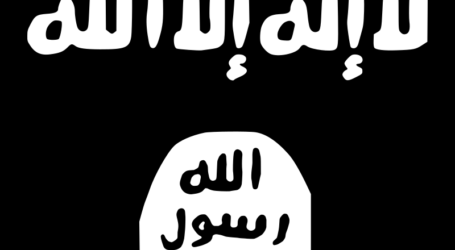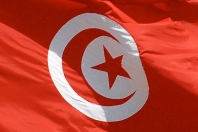Propaganda Isis in Tunisia durante le elezioni
Tunisia’s first-ever municipal elections, scheduled for May 6, are an important milestone in the quest to implement democratic institutions and give locals more agency in making decisions about their needs—two goals that, unsurprisingly, run counter to the vision, interests, and ideology of Salafi-jihadist groups in the region. The Islamic State (IS) has signaled that it hopes to disrupt the vote, focusing official propaganda on Tunisia for the first time since summer 2016.
Over the past two years, the group’s activity in Tunisia has been significantly constrained, but low-profile attacks have continued in the interior governorate of Kasserine. The elections represent a high-stakes opportunity to encourage and empower residents of this forgotten area, so the government would be wise to focus on securing not only higher-profile targets in the capital and coastal regions, but also polling sites in the interior. Such efforts could further legitimize the democratic process, showing skeptical locals that the central authorities are slowly but steadily reaching out to them on governance and other issues.
THE ISLAMIC STATE’S CRITIQUE OF ISLAMISTS
Salafi-jihadists consider democracy a religion, one in which humans contravene the sovereignty of God by attempting to make their own laws. In placing themselves on God’s level, politicians—including Islamists—violate the fundamental monotheistic principle of tawhid, which makes them polytheists.
This ideology informs the recent IS campaign against democracy in Tunisia and the Islamist parties that take part in it. An article in issue 123 of the group’s weekly newsletter al-Naba, released in mid-March, implicitly targeted the country’s top Islamist party, Ennahda. Without naming names, IS took aim at the argument that “democracy is the best way to establish religion”—a reference to the explanation that Ennahda and other Islamist groups have used to justify their participation in elections.
The article also argued that the democratic process results in nothing but “false claims,” alluding to the fact that when Ennahda was the leading party in Tunisia’s government from 2011 to 2014, it backed down on key Islamist demands such as using sharia as a source of law in the constitution, giving women a different legal status from men, and enshrining punishments for blasphemy. Yet the party did not fail to implement these measures for lack of trying, but rather because it held only a plurality of the vote in the legislature, not a majority. More important, such proposals were defeated because the Salafi-jihadist group Ansar al-Sharia in Tunisia was conducting low-level public violence and shows of strength at the time, spurring secular-leftist parties to block the legislation out of fear that Ennahda was slowly creating a conservative Islamic state.
In addition, the IS critique is at least partly rooted in Ennahda’s May 2016 decision to proclaim that it is no longer an Islamist movement, but rather a “Muslim Democratic party” that separates dawa (proselytization) from politics. Questions persist on what that means in practice and how much Ennahda has actually changed at the operational level, but IS has nevertheless exploited the announcement to question the party’s credentials.
NEGATING WOMEN’S RIGHTS
The March IS article also took aim at Tunisia’s recent proposals regarding equal-inheritance laws for women and men, bringing up the country’s 1956 Code du Statut Personnel (Code of Personal Status). Promulgated by the country’s founding president, Habib Bourguiba, and reinforced by his successor, Zine al-Abidine Ben Ali, the CSP abolished polygamy, created a civil marriage procedure based on mutual consent, established a legal divorce method that ended the practice of “repudiation,” and regulated child adoption. From the Islamic State’s perspective, such measures contravened God’s law and paved the way for further transgressions such as equal-inheritance provisions.
To prove its argument, the article cited Quran verse 4:11: “God instructs you concerning your children: for the male, what is equal to the share of two females.” More broadly, IS declared that events in Tunisia “have proved that democracy is not only infidelity to God’s greatness…but [also] dominated by the idolatrous rule of the tyrants.”
This type of language should not be taken as mere rhetoric, since the article later uses Quran verse 16:106 to justify legitimate action against Muslims who violate God’s law: “Whoever disbelieves in God after his belief…upon them is wrath from God, and for them is a great punishment.” In the view of IS, such passages sanction violence in Tunisia, so the group’s warnings should be taken seriously.
BROADER FOCUS ON MUSLIM DEMOCRACY AND ELECTIONS
The article’s criticism of Tunisian democracy is also in line with recent IS propaganda and violence aimed at undermining the legitimacy of elections in other regional states. In mid-February, during the lead-up to Egypt’s presidential election, IS branch Wilayat Sinai released a video condemning the vote and calling on “true” Muslims to avoid large gatherings on election day, implying that polling stations would be targeted.
In April, issue 128 of al-Naba claimed responsibility for three attacks on party headquarters and leaders in the Iraqi provinces of Anbar, Diyala, and Kirkuk, as part of a wider campaign against “polytheistic democracy.” The violence was backed up with an April 22 audio message by IS spokesman Abu al-Hasan al-Muhajir calling for attacks on anyone associated with Iraq’s May 12 parliamentary elections.
The same day as Muhajir’s message, IS branch Wilayat Khorasan claimed responsibility for attacking an election registration center in Kabul, Afghanistan. Two days later, IS released a video message about the branch Wilayat al-Furat on the Iraq-Syria border, showcasing the group’s continued governance efforts and supposed benefits for the local population it rules as a contrast to the “illegitimate” alternative of a democratic system. Taken together, such efforts highlight the organization’s recent focus on eroding Muslims’ trust in elections and related processes.
WHAT DOES THIS MEAN FOR TUNISIA?
The larger question in the Tunisian context is not so much the Islamic State’s intent, but its actual capacity to take damaging actions there. In Afghanistan and Iraq, the group has conducted attacks in addition to issuing threats, but in Egypt, its warnings did not presage violence on election day. Determining what might happen in Tunisia is a function of the group’s current status there and the state’s capacity to prevent attacks.
IS violence in Tunisia peaked from early 2015 to early 2016, with high-profile attacks against the Bardo National Museum, Sousse Beach, and Presidential Guard personnel in Tunis, as well as a takeover attempt in the town of Ben Gardane. Since then, however, IS militant activity has been relegated to mountainous regions in the interior such as Jabal al-Meghila. Rather than launching large-scale attacks on civilians or trying to take over territory, IS fighters now target security forces or shepherds who refuse to give them provisions. This suggests that the group’s network of Tunisian operatives based in Sabratha, Libya—who helped prepare the aforementioned mass-casualty attacks in 2015-16—have been severely degraded. IS now seems to be relying on homegrown networks in Tunisia that do not have the same operational freedom they enjoyed in Libya.
Accordingly, if IS launches attacks in Tunisia in the coming days, it could focus on election facilities or political parties in the interior. Salafi-jihadists have attempted such disruptions before: Ansar al-Sharia in Tunisia was involved in incitement, riots, and vigilantism in the lead-up to the October 2011 legislative elections, and in 2012-13 it attacked a number of politicians in the interior. The group’s assassination of leftist political leaders Chokri Belaid and Mohamed Brahmi almost derailed the constitutional drafting process and the broader transition.
Today, many residents in the interior are skeptical of the central government and the coastal regions due to a long history of being underserviced and left behind, so IS may seek to compound that sentiment by shaking their trust in the election process. In contrast, a successful vote that cedes more power to a broader base of local authorities would be an important accomplishment in cementing Tunisia’s democracy. Washington should therefore speak with its partners in Tunis about how best to secure all areas of the country, not just the traditional powerbase on the coast.





